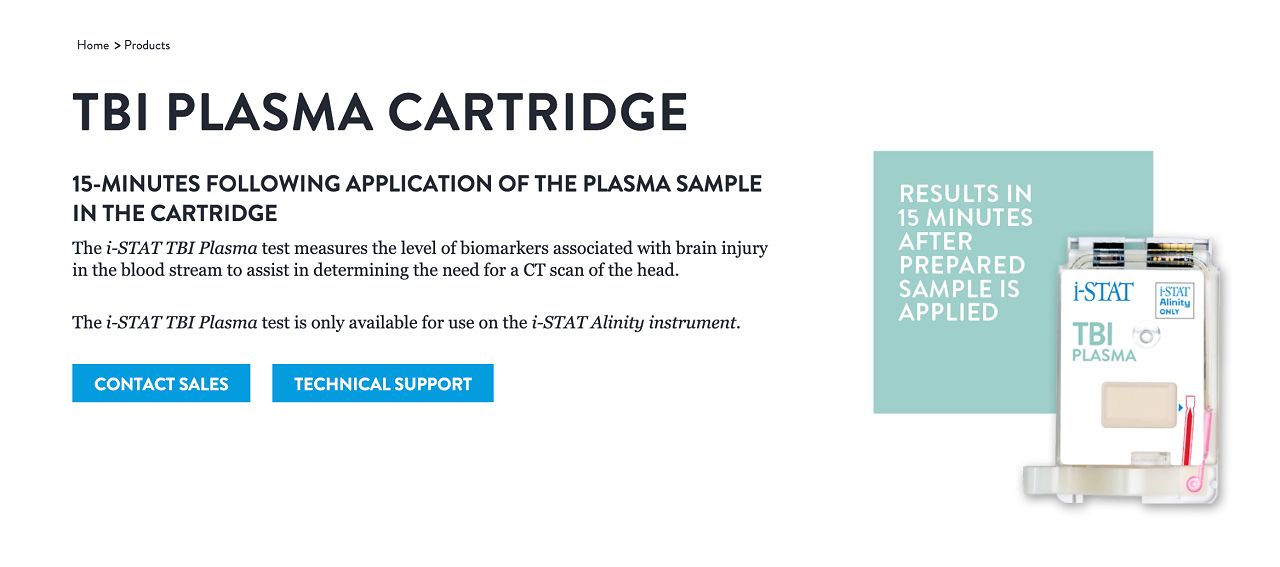RALEIGH, N.C. — The future of diagnosing head injuries could soon be changing.
The FDA has cleared the first concussion testing using blood. The implications are far-reaching, especially for sports where doctors and nonmedical staff can receive on-site results within minutes. The emergency rinkside physician for the Carolina Hurricanes talked about the impact of this technology.
“If you could have a test that would allow us to assess somebody quickly to determine, you know, that person needs to come out and not play, that’s fantastic,” Dr. Ryan Lamb said.“If you could have a test that would allow us to assess somebody quickly to determine, you know, that person needs to come out and not play, that’s fantastic,” Dr. Ryan Lamb said.
Lamb is also the medical director of emergency medicine at UNC Rex Hospital in Holly Springs.
Made by Abbott, the device works by reading biomarkers detected in blood samples. The test can determine if a person has a concussion within 15 minutes without ever leaving the field.
In sports with high-impact collisions, such as hockey and football, the potential for serious brain injuries increases by simply stepping onto the turf or ice.
Lamb sees it at the rink a lot.
“Professional athletes at that level have extreme expertise available to them, but that’s not the case for everyone doing sports everywhere,” Lamb said.
The Abbott portable i-STAT Alinity instrument uses a TBI cartridge to generate lab-quality results without entering a hospital or needing a CT scan. Lamb said this can dramatically improve response to the injury and quality of care to treat a would-be injured person’s head trauma.

Lamb believes proper equipment is at least one buffer reducing the risk of serious head injury.
“I think not being afraid to say, ‘Hey I think I have a head injury. I need to be checked out.' I think if we master those two things we will do the most for head injuries before any other medical invention that we come up with,” he said.
The concussion detection test is yet to be used in sports settings. However, company officials are eager to get this technology in sports settings across America.




